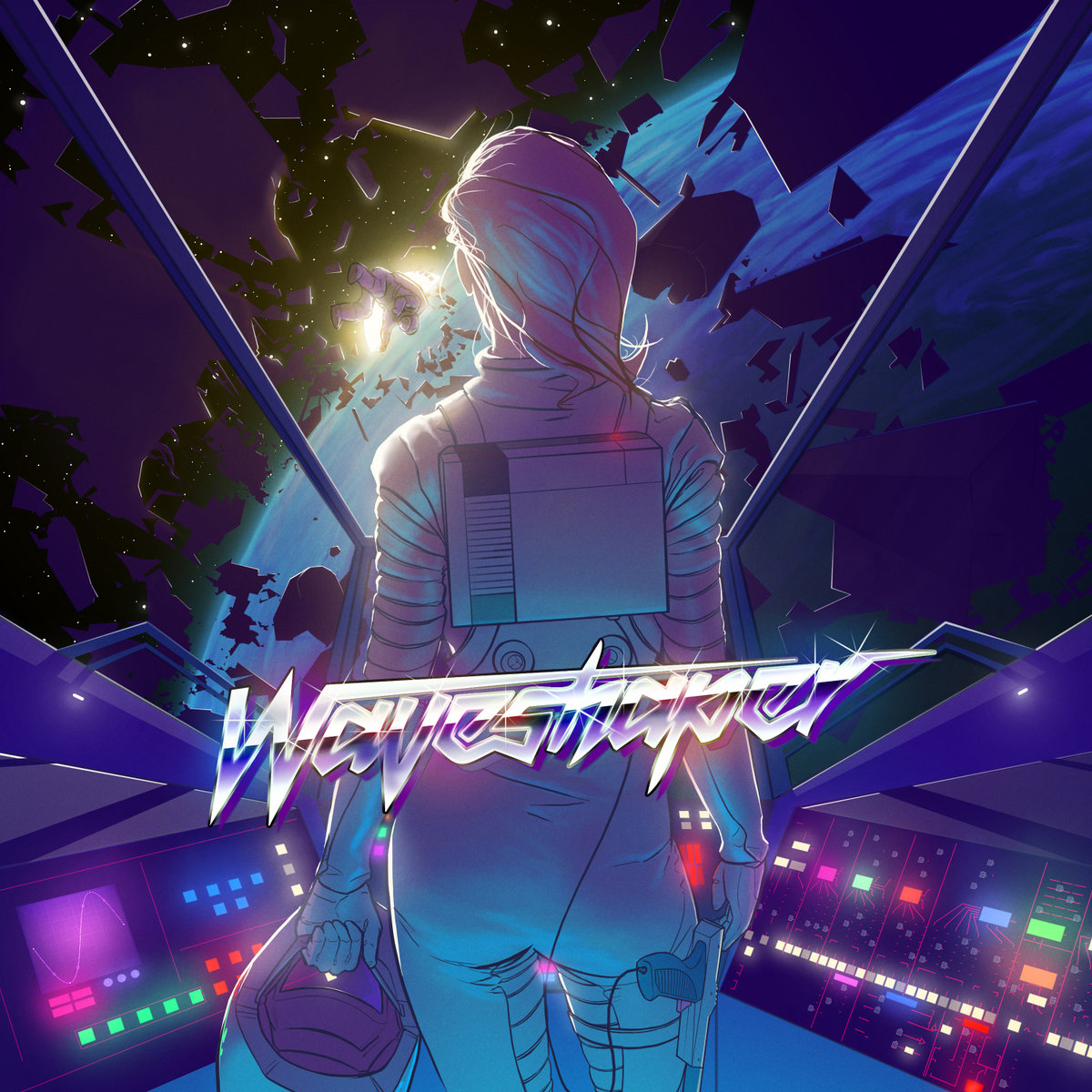The Merrim-Webster definition of nostalgia reads:
- a wistful or excessively sentimental yearning for return to or of some past period or irrecoverable condition.
It’s a bittersweet warmth when we think about Star Trek II: The Wrath of Khan or when the Blade Runner soundtrack plays on the Spotify queue. It helps ground us when life gets extra turbulent and the alienation and pressure from work and living in the modern world weighs down on us.
It can bring joy, tears, meaningful critique of our past as individuals or a society, or any mixture thereof. Every person is nostalgic for different places, albums, films, and memories, but as cultural collectives, some things can pull on our societal heartstrings.
Synthwave is a small electronic genre concept related to vaporwave, completely reliant on and an epitomization of nostalgia, mostly focusing on the 80s. Horror and sci-fi flick soundtracks, arcade video games, and synth-pop hits from the decade are all ripe for sampling, and the synthesizers and rolling electronic drums call back to fictional, retro-futuristic elevators that exist only in Back to the Future Part II and our imagination.
On the other side of the world, the 80s were as iconic of a decade, with the seminal The Mystery of the Third Planet being released and It Can’t Be! Still, on everyone’s mind, the media of the Soviet 1980s would continue to influence pop culture,—especially music—for decades.
Waveshaper’s Station Nova is amongst the best examples of synthwave as a genre, complete with synth-pop vibes and a cool cyberpunk cover.
With the dissolution of the Soviet Union came sweeping neoliberal reforms and mass privatization. The decade following the fall of the Berlin Wall saw skyrocketing mortality rates, plummeting standards of living, a breakdown of the Russian university system, and rising income inequality.
Today, 30 years since the beginning of the Russian Federation, 75% of Russians say that the Soviet era was the high point of their history, with similar views echoed in other former Soviet states. For many, the 80s were a time in living memory when their material conditions were better and the symbols and emotions associated with the USSR (belonging to a great whole, being a part of a country that is exploring space with the aid of its neighbors, the feeling that the government looked out for the little guy) are nostalgic and hopeful.
Sovietwave, a microgenre within synthwave, reflects these bittersweet memories. In place of the graphic novel-style American synthwave album covers or overlapping consumerist symbols of vaporwave, sovietwave cover art tends to be photos of Soviet cities, agitprop posters, and cartoon cosmonauts.
Similarly, rather than taking inspiration from Eurodisco and house music like synthwave, sovietwave finds itself as a spiritual successor to USSR’ new wave and post-punk scenes, so much so that 80ss synth-pop artist КОФЕ is featured as often as sovietwave groups in sovietwave playlists.
The genre is defined by reminiscing of the space age, utopian futurism, and the hope for scientific advancement in a better world. Sovietwave is a symbol of a bygone era of hope and achievement for many young people in former Soviet states, but by its nostalgic nature, it is also a reminder that life can be better and that those utopian visions still have some value today.
Катастрофа при спуске by Гербарий is fantastic sovietwave — cosmological themes, slow, uplifting melodies, post-punk arrangement.
Nostalgia, however, isn’t a one-way street with symbolism. The 80s in the US weren’t just action movies and kitsch elevator music, it was also the heart of the Reagan era, marked by extreme systematic racial inequality, rampant queerphobia, and trickle-down income inequality. For most Americans nostalgic for the decade, these are the parts that we like to forget or ignore through rose-tinted glasses, but for the modern alt-right, these are the high points.
Fascism has a long and disturbing history with weaponizing nostalgia, dating back to German, Italian, Spanish, and Japanese fascists essentially making up fantastical histories of made-up ethnic groups to justify the nationalist war machines. Today is no different, and synthwave and vaporwave calling back to the 80s (“the last days of white America” according to alt-right celebrity Richard Spencer) provides the perfect hunting ground for recruitment and a vast repertoire of potential symbols and dog whistles for those already initiated.
In 2016, the now seemingly abandoned Canadian satirical blog, Rave News published a tongue-in-cheek piece that stated that popular vaporwave artists were meeting to discuss fascists encroaching on the genre. As of writing, all the comments on the post are by fascists, and it didn’t take long before neo-Nazi Andrew Anglin explicitly called for vaporwave to be embraced by fellow white supremacists. Neither vaporwave nor synthwave has been taken over totally by fascists, but the terms “fashwave” and “trumpwave” are now somewhat commonplace, and they’re just as likely to be discovered by a new fan now as in 2016.
Nostalgia can be a powerful tool for our mental health and individual prosperity as well as a catalyst for our collective values, history, and ambitions. It gives us an avenue to fondly remember cartoons and for entire generations to take and find comfort in their parents’ and grandparents’ culture and lives.
It also isn’t unheard of to put on a synthwave compilation on YouTube and end up with a song a couple autoplays down the line that samples a speech by Hitler. Our memories, hazy or critical, personal or communal, are ours to own. Nazis really like taking our culture, religion, symbols, and traditions and twisting them into grotesque shapes for their own uses.
Synthwave wasn’t the first music genre to be invaded, but much like the hardcore punk and black metal scenes before it, it still holds value now. We can think about the ripples Dead Kennedys made across all of punk, even when far-right skinhead culture was reacting with hatecore. Every piece of art we make is in danger of being co-opted by hate, and it’s our job as artists, fans, and geeks to keep Nazis the hell out.
Writer’s Note: Because I am uncomfortable giving fascists a platform of absolutely any kind, I skimped a good bit on the details for fashwave. For more information, Vice published a piece a few years back talking specifically about the phenomenon as well as providing some extra context for the aforementioned right-wing buffoons, the satire inherent to vaporwave and synthwave, and how the far right capitalizes on the appropriation of niche and popular culture.











